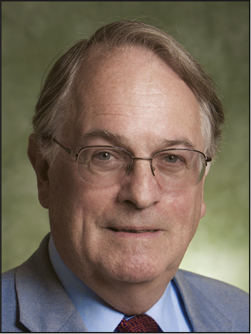The Materials Research Society’s (MRS) David Turnbull Lectureship Award recognizes the career of a scientist who has made outstanding contributions to understanding materials phenomena and properties through research, writing, and lecturing, as exemplified by the late David Turnbull of Harvard University. M. Stanley Whittingham, Binghamton University, The State University of New York, has been selected to give the Turnbull Lecture at the 2018 MRS Fall Meeting in Boston. He is cited “for fundamental contributions to solid-state ionics, including the discovery of the key role of intercalation mechanisms, and the development and commercialization of rechargeable Li-ion batteries.”

Whittingham received his bachelor’s and PhD degrees in chemistry from the University of Oxford, where he established his initial expertise in solid-state inorganic chemistry through his early work on tungsten bronzes. For more than 45 years, he has laid the groundwork for lithium rechargeable battery development, starting with the basic idea of utilizing intercalation compounds as electrode materials and demonstrating the viability of these technologies for commercial manufacturing.
Whittingham first moved to the United States to work with Professor Bob Huggins at Stanford University. His work in solid-state ionics and beta alumina led to his appointment as the director at ExxonMobil. He later joined the faculty at Binghamton University as professor and the founding director of the Institute for Materials Research.
Perhaps the most significant development in solid-state ionics and battery materials has been the discovery and commercialization of a large class of intercalation compounds as electrode materials. Whittingham ushered in this revolution with his early insights into the potential for ion insertion in layered compounds and the development and commercialization of Li-ion batteries using LiAl alloy anodes and TiS2 cathodes.
He has received the Distinguished Research Award from the American Chemical Society, the Lifetime Achievement Technology Award from NAAT Batt International, and the IBA Yeager Award. He also serves on the MRS Bulletin Editorial and Energy Quarterly Boards.


